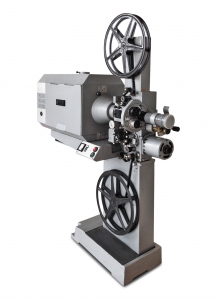Anytime I go out to eat or to a fast food restaurant, my mind automatically thinks in terms of ways a company can save wasteful state tax dollars in its operation. Whether I am at a restaurant that hands out silverware, a fast-food chain that offers plastic silverware, or a restaurant that gives away items, the use tax issues can likely be avoided if the company practiced careful sales and use tax planning techniques.
Over the past few years, a couple of cases in Alabama showcase the ongoing dilemma. The first case involved Logan’s Roadhouse. Many of us have been to a Logan’s across the country and enjoy the ability to eat peanuts and throw the shells all over the floor. But how many of us, aside from me, actually analyze the sales and use tax implications of this practice?  Are the peanuts being purchased by Logan’s and resold to its customers? Or is Logan’s purchasing the peanuts for its own use as a giveaway to its customers?
Are the peanuts being purchased by Logan’s and resold to its customers? Or is Logan’s purchasing the peanuts for its own use as a giveaway to its customers?
In a similar case, Kelly’s Food Concepts (KFC, Popeye’s, and Church’s Chicken) illustrates a common restaurant problem that has been litigated since the creation of the sales tax. Are items purchased by a restaurant such as napkins, utensils, straws, stirrers, trays, kitchen supplies, ketchup, salt and pepper, toilet paper, and other items on the table, for the restaurants use or resold to the customer for its use?
Without immediately diving into the cases, it seems appropriate to explain a common problem faced by the state and local tax professional. Most states (45) have a state sales tax regime. The sales tax attempts to tax consumption by adding a tax to the end-user of tangible personal property (“TPP”). While each state various as to exactly what is and is not taxable, every state that I am aware of has a sale for resale exemption. That means that when a business purchases something it does not pay tax but rather charges tax to its customer when the item is resold. Conversely, the business is the end user on items it purchases for its own use (items not for resale) and it owes a use tax on those items. While it seems obvious whether an item is an exempt sale for resale, as shown by a couple simple examples above, this inquiry can become quite complicated.
Continue reading
 Multi-State Tax Law Blog
Multi-State Tax Law Blog


 Are the peanuts being purchased by Logan’s and resold to its customers? Or is Logan’s purchasing the peanuts for its own use as a giveaway to its customers?
Are the peanuts being purchased by Logan’s and resold to its customers? Or is Logan’s purchasing the peanuts for its own use as a giveaway to its customers?